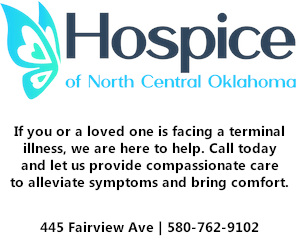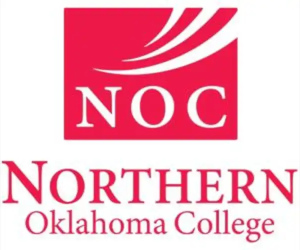OKLAHOMA CITY, Okla. (KOKH) — A simple blood draw to test your body for more than 50 types of cancer is considered promising for early cancer detection, though there is concern about its reliability ahead of FDA approval and clinical trials.
The multi-cancer early detection, or MCED, test was developed by scientists by accident. Initially used to detect abnormalities in fetuses to avoid amniocentesis, the test also signaled cancer in mothers although they didn’t notice symptoms. That excited the medical community and patient advocates on what this test could mean for early detection.
“We do have a relatively high cancer rate and we have a very poor screening rate,” said Dr. Jerry Jaboin, a radiation oncologist with OU Health.
Dr. Jaboin is one of the doctors overseeing a clinical trial using the Galleri test from GRAIL, one of many MCED tests on the market.
The company claims to screen for dozens of cancers through a blood draw. The test can be taken annually and is reserved for older individuals with a family history of cancer. Although it is available, it’s not covered by insurance and has an out-of-pocket cost of $949.
The clinical trial in Oklahoma, with more than 200 patients, is part of a global study with already more than 10,000 patients and doctors looking for more to sign on.
Dr. Andrea Johnston, a radiation oncologist with OU Health overseeing the trial, said the test could become a screening standard but right now it’s available on a case-by-case basis.
She said the trials could help gather more data that the test is effective, leading to FDA approval and Medicare coverage.
“Medicare paying for it, that’s normally a foot in the door for every other insurance company paying for it too,” Johnston said. “So, that will kind of shed light on the importance of it. But then also, we know that cancer is more common in the aging population so that would be a great start for some of the most high-risk patients to get this screening done.”
The doctors at OU Health found the test’s detection rate is similar to cancer detection rates of colonoscopies and mammograms.
They said those methods are still the preferred cancer screening options, but the MCED test has the potential to become that standard in the future.
“It’s one of those few tests where it keeps getting better with the more data it gets, so being able to add another 20-25,000 patients [to the trial], especially people of Native American backgrounds, different socioeconomic backgrounds, different racial backgrounds, [it] expands the value of the test.”
Oklahoma has the seventh highest cancer mortality rate in the US with more than 20,000 cancer cases a year and more than 8,000 deaths annually, according to OU Health.
“We are probably in the bottom five [states] for our screening, so the need for us to detect additional cancers is greater.”
Some medical professionals aren’t convinced the test can do what it claims though.
Dr. Diane Heaton, a radiation oncologist and a former president of the Oklahoma State Medical Association is skeptical of how quickly those promising results will be available.
“Everybody wants the test to work,” Heaton said. “I don’t think it’s at the point it can be utilized on a large volume of patients yet.”
Heaton said she was offered the test as a patient. She said that she paid the nearly $1,000 bill for the test and thankfully it came back without detecting cancer.
She questions the “early detection” label on the test. She said some cancers need to be in an advanced stage to appear in blood cells.
“What my concern is, is that we will have a blood test and we’ll miss the colonoscopies and mammograms and the tried-and-true surveillance,” Heaton said.
Dr. Jaboin said he was also skeptical of the medical marvel but found through the trail that the more people who test, the more the test can find cancer signals.
What if we didn’t develop the test and we never knew that we had an opportunity to detect 70% additional cancers that could be curable?
“If we can prove that signal is then worth the rest of the pull, that by curing a person early, that you’ll get all of that saving in healthcare cost, which I think we might do, then it’s a game-changer,” Jaboin said.
OU Health closed in summer 2024 and trials in the United Kingdom are going on through early 2025 with thousands of patients.
The excitement for the test doesn’t end with the medical community.
Patient advocates, like Jody Hoyos, CEO of the Prevent Cancer Foundation said she is hopeful that legislators can also push for insurance coverage, making it more accessible to patients.
“Having cost as a barrier is not something we want to see,” Hoyos said. “Early detection equals better outcomes. So early detection can mean more treatment options, less intensive treatment and ultimately better chances of survival.”
Hoyos is encouraging people to reach out to their lawmakers in Congress.
Some of Oklahoma’s congressional leaders are aware of the test and support it.
Rep. Stephanie Bice and Rep. Tom Cole are two of the 319 co-sponsors in the House for the Nancy Gardner Sewell Medicare Multi-Cancer Early Detection Screening Coverage Act.
The bill is named after Rep. Terri Sewell’s mother who lost her battle with pancreatic cancer in 2021.
If passed into law, it would expand Medicare coverage for the MCED test once approved by the FDA.
“If we can find early detection through these screening processes, it saves lives,” said Rep. Stephanie Bice, R-OK 5.
“There’s been, I think, just an outpouring of support in making sure that people are getting tested and this is one way to do that,” she said.
Rep. Tom Cole also supports the bill. He said cancer is a disease that affects almost every American in some form.
“Research has proven that early detection of cancer is one of the most useful tools for increasing the number of positive outcomes in cancer cases,” Cole said in a statement.
Since the bill was introduced in 2023, it’s gained widespread support in Congress but hasn’t gained much momentum. It’s still in the committee stage.
Dr. Johnston with OU Health said the trial and the bill are ways to lead for innovation in cancer technology and research, especially for older Americans on Medicare.
”We know that cancer is more common in the aging population so that would be a great start for some of the most high-risk patients to get this screening done and then allow for other insurance companies to see the benefit of it,” Johnston said.
Rep. Bice said she thinks the MCED test bill will move forward this year.
























